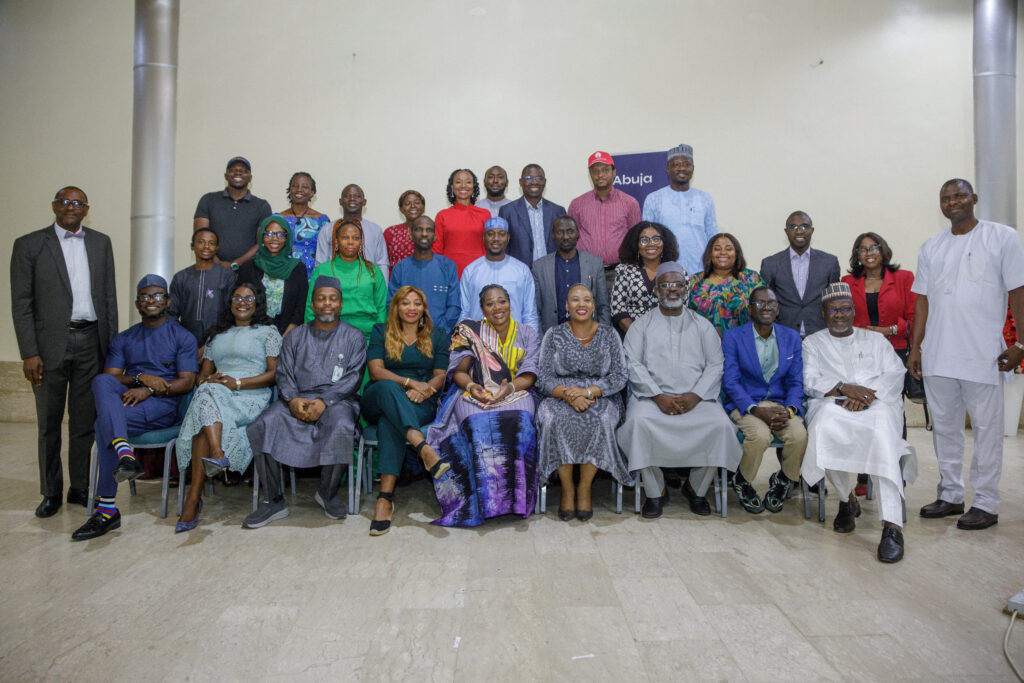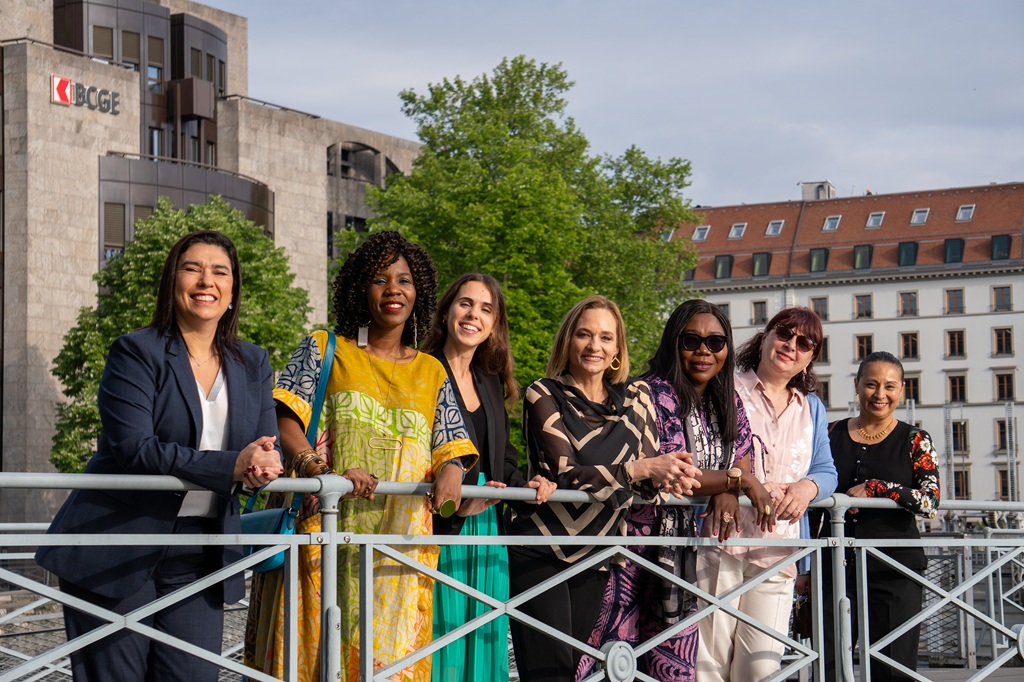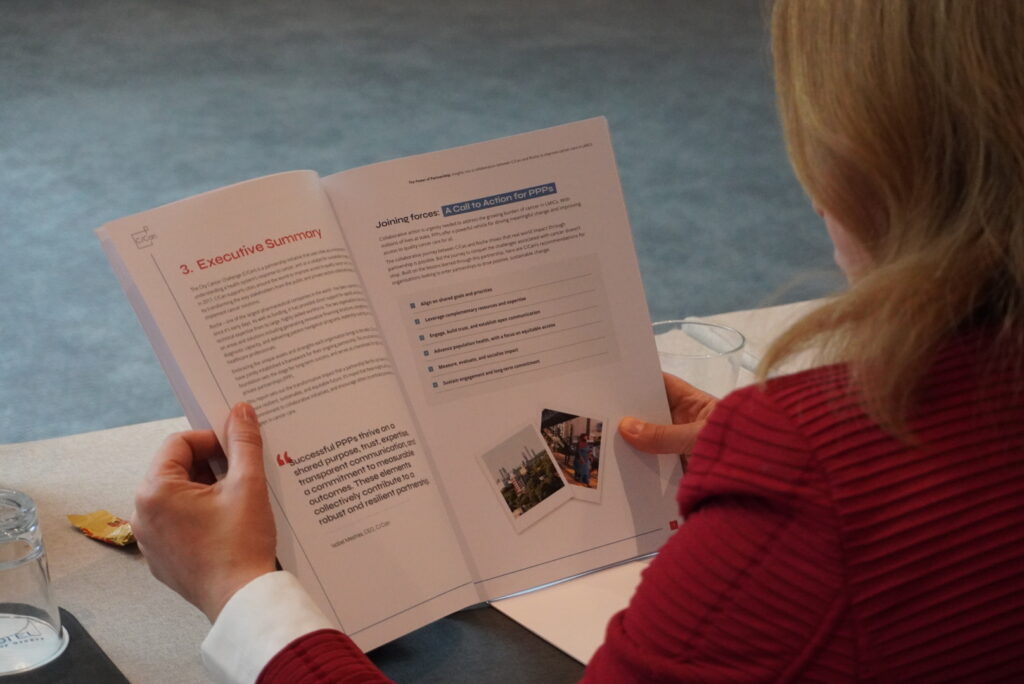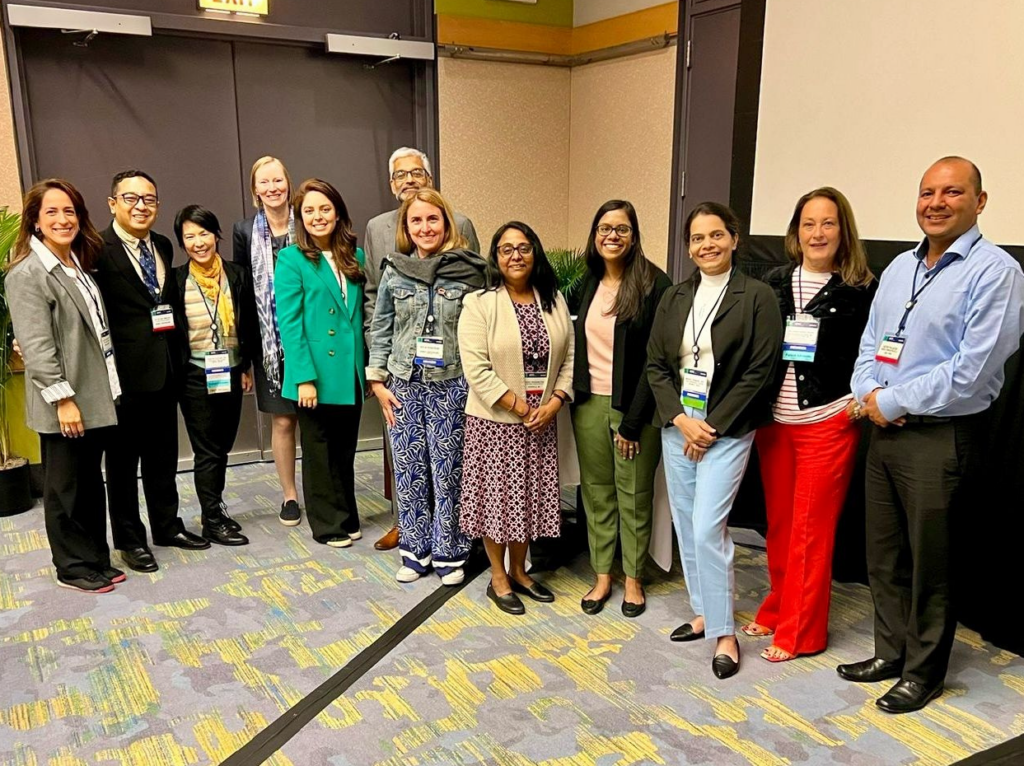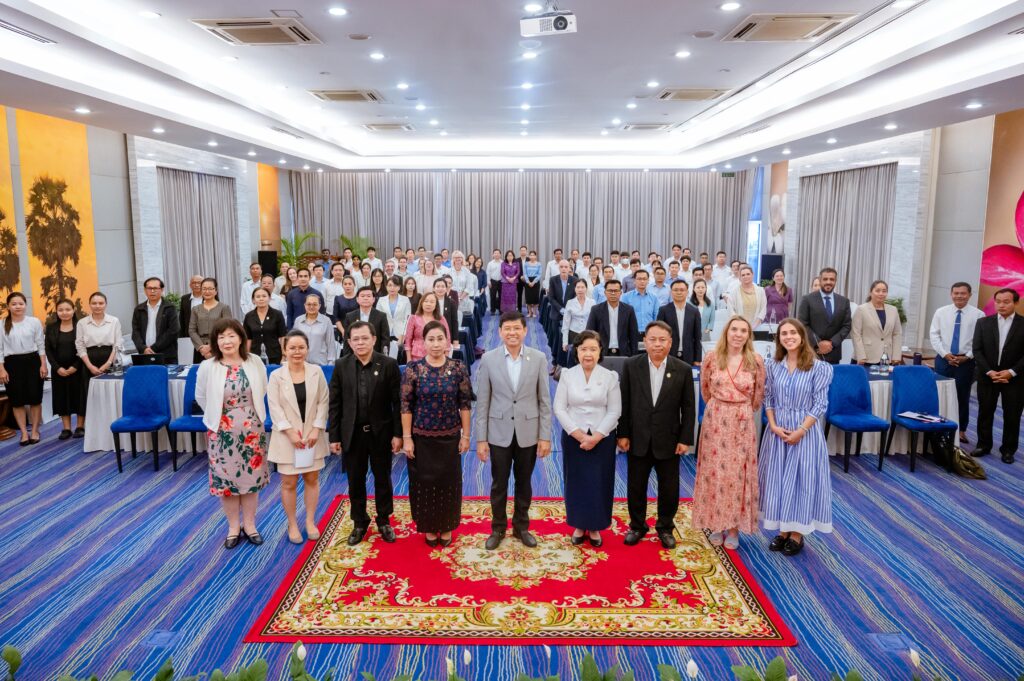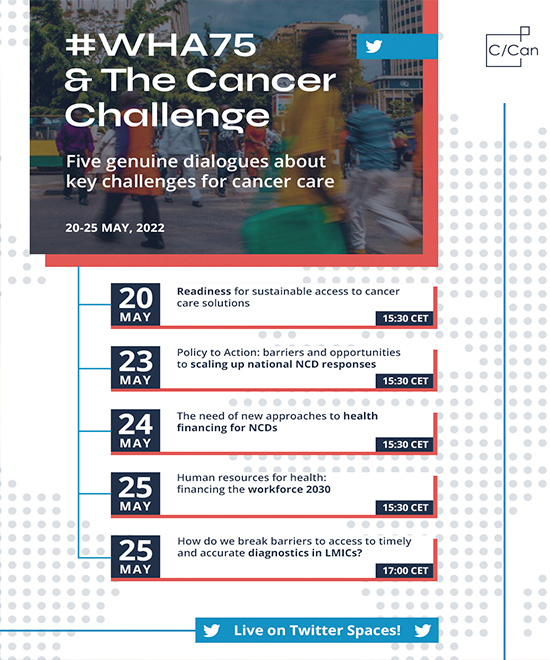
The upcoming 75th World Health Assembly (WHA75) will bring health leaders from around the world together to discuss the planet’s most pressing healthcare priorities. While the pandemic and its lingering impact on health systems will be central to discussions, there will be a renewed focus on progress, or lack thereof, towards the 2030 global non-communicable disease targets.
WHA will consider an Implementation Roadmap 2023-2030 which includes urgent measures in 2023 and beyond, to accelerate progress and reorient and accelerate efforts to meet SDG 3.4.
Throughout WHA week, C/Can will be hosting a series of conversations about some recommended actions, other areas still to be addressed, and relevant learnings from our cities via Twitter Spaces: live audio conversations within the Twitter app that will allow C/Can, its partners and stakeholders to engage in a real-time discussion.
Follow us on Twitter from 22 to 28 May during the 75th World Health Assembly and learn more about C/Can’s work.
Friday, 20 May – 15:30 CET
Readiness for sustainable access to cancer care solutions
On Friday, at 15.30 CET, Maria Fernanda Navarro, C/Can’s Regional Director for Latin America, will be hosting a conversation about the critical areas and processes needed to ensure that the health systems of resource-scarce countries are equipped to provide the right treatment to the right patient at the right time. Impactful cancer treatment requires accurate and timely diagnoses, along with effective, multi-disciplinary decision making, while patient barriers must be identified, acknowledged and improved systematically.
Guest speakers
- Victoria Elegant, Global Lead, Access to Medicines, Amgen.
- Beatriz Hornburg, American Society for Clinical Pathology.
- Damon Taugher, Vice President, Global Programs Direct Relief.
Monday, 23 May – 15:30 CET
Policy to Action: barriers and opportunities for scaling up national NCD responses
On Monday, at 15.30 CET, Rebecca Morton Doherty, C/Can’s Policy and Global Impact Director will be hosting a conversation that will explore ways to strengthen the design and implementation of enabling policies for resilient health systems that can provide the services, infrastructure, and workforce needed to treat people living with NCDs.
The WHO has recommended that 75th WHA adopt the NCD-GAP 2023-2030 draft implementation road map,which includes urgent measures, in 2023 so as to accelerate progress and reorient and accelerate efforts to meet SDG 3.4.
One of the key recommended actions for member states is to assess the current status of domestic NCD responses against the SDG targets on NCDs and identify the barriers and opportunities for scaling up national NCD responses, including multistakeholder engagement. The question is, what can be done to address policy barriers and enablers?
Guest speakers
- Salvador Camacho, Senior Project Leader, Swiss Tropical and Public Health Institute.
- Dr Barbara Profeta, Steering Committee member of the Health Systems Global Network’s TWG on fragile and conflict-affected Settings, Swiss Development Agency.
Tuesday, 24 May – 15.30 CET
The need for new approaches to health financing for NCDs
On Tuesday, at 15.30 CET, Mathieu Morand, C/Can’s Health Financing & Digital Senior Manager will be hosting a conversation to explore new ways to finance meeting the WHO’s NCD goals.
Most public health financing in most low- and middle-income countries does not sufficiently cover cancer care, either because of caps, exclusion, or simply insufficient budget allocation.
The growing burden of cancer requires the development of smart investment strategies, and putting money into the right areas to maximise outcomes. And while outcome-based payment and funding are fairly widespread, the question is how to implement them.
Mathieu will also be asking what is the role of private sector funding, whether, private insurance has a role to play, and which health systems in resource-scarce countries are most favourable to innovation.
Guest speakers
- Fernando Arnaiz, Global Access & Healthcare Funding and Financing Solutions Lead, Roche.
- Fernando Chacon, Health Finance Consultant.
- Yun Fu, CFA, Innovative Finance Principal, HFI.
- William Harris Tavel, Industry Analyst, IFC.
- Segrid Holler, Partner, Instiglio.
- Pablo Morales, Health Impact Lead, Roche.
Wednesday,25 May – 15:30 CET
Human resources for health: financing the workforce 2030
On Wednesday, at 15.30 CET, Dr Susan Henshall, C/Can’s CEO, will be hosting a conversation about the healthcare workforce deficit in low-and middle-income countries (LMICs), particularly in relation to cancer care.
How can resource-scarce countries unlock the financial resources they need to attract, train and retain their healthcare workforces sustainably?
Until now, the development sector and governments have focused on primary care, which while critical to getting patients on to treatment pathways, does little to help develop diagnostics and increase treatment capacity.
There’s a great deal of innovation going on under the radar, and Dr Henshall will be asking you to share creative solutions for developing human resources by leveraging innovative financing solutions.
Guest speakers
- William Harris Tavel, Healthcare and Education Industry Analyst, IFC.
- Dr Kevin Massoudi, Head of Government Affairs & Market Development, EMEA, Varian, a Siemens Healthineers company.
- Albane Sautory Senior Consultant, Social innovation and inclusive business Archipel & Co.
- Kate Tulenko, CEO Corvus, Health.
- Charles William Dalton, Senior Health Specialist, IFC.
Wednesday,25 May – 17:00 CET
How do we break barriers in access to timely and accurate diagnostics in LMICs?
On Wednesday, at 17.00 CET, Isabel Mestres, C/Can’s Director of Global Public Affairs, will be hosting a conversation that will look at the obstacles to giving cancer patients in low- and middle-income countries prompt accurate diagnoses. The data shows that complete, timely and accurate diagnosis is vital for multi-disciplinary teams to be able to decide on the most suitable treatment plan for a cancer patient. But in LMICs assessing the right treatment is often made more difficult by a range of barriers that mean the team treating a cancer patient doesn’t have access to the required information early enough, as this article explains.
Guest speakers
- Bhavik Adroja, Head of Value and Access, Novartis.
- Michael Bates, Vice President, Medical and Scientific Affairs, Oncology at Cepheid.
- Fredrick Chite Asirwa, CEO, International Cancer Institute.
- Allison Grande, Sr. Manager, Global Market Access, Thermo Fisher Scientific
- Dr Dan Milner, Chief Medical Officer, American Society for Clinical Pathology.

